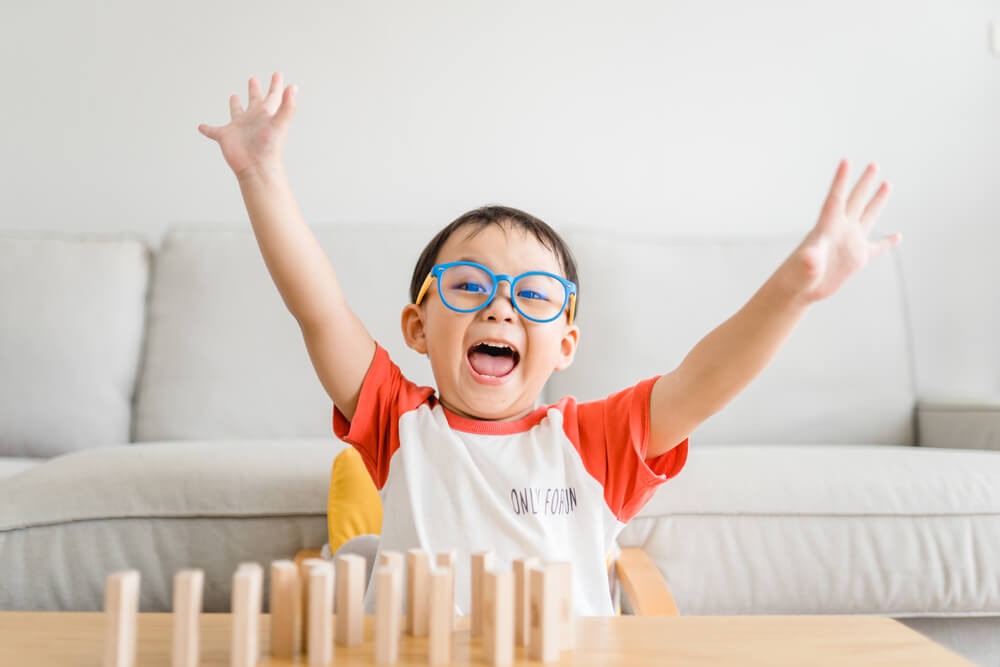Self-esteem is crucial for a long and happy life, but did you know that building confidence and a positive self-image begins in childhood? Whether you are a new or a seasoned parent, educating yourself on self-esteem and how to boost your child’s confidence can be helpful for future success.
In this expert-reviewed article, you will find out everything there is to know on how to build confidence in kids, why having self-confidence is important, and which activities can help your child form a better “self-image.” That said, we understand that mental development in childhood can be confusing, especially for first-time parents. If you are looking for expert guidance, consider Well Child Visits in South Miami, Florida.
Without further ado, here are the must-know facts on your child’s self-esteem and why it is the key to a happy and prosperous life in adulthood.
What is Self-Esteem?

In short, self-esteem is how we see and value ourselves. Overall, self-confidence or self-esteem is based on the opinions and beliefs we have about ourselves, and these can be negative or positive. Unfortunately, these may sometimes be challenging to change, and you may require the assistance of a trained professional.
Here are some ways low or high self-esteem can affect the way a person lives:
- You recognize or fail to recognize your positives and strengths
- You value and like yourself as an individual (or you do not like yourself)
- You are kind (or unkind) to yourself
- You believe you matter and deserve the best
- You believe you deserve to be happy
- You feel confident (or shy away from) trying new or challenging things
Here are some ways you can recognize high self-esteem or low self-esteem in kids.
- Are hard on themselves and highly self-critical
- Lack confidence and shy away from trying new activities
- Doubt themselves and do not believe they are “good enough”
- Think of the times they have failed and forget about times they reached success
On the flip side, kids with high self-esteem:
- Feel confident
- Feel accepted and liked by others (and by themselves)
- Feel proud of their accomplishments
- Believe in themselves and that they deserve happiness
- Have positive thoughts about themselves
As you can see, self-esteem or self-confidence is an individual’s overall sense of worth. Since how we see ourselves is crucial for success in life, it is important to teach our children a positive and confident mindset.
Why Does Self-Confidence Matter?
By now, you know that having a positive self-image is crucial for success and happiness. But how else does having low or high self-esteem help our children in life? Here is a quick rundown of why having positive self-image matters.
Firstly, children who feel good about their achievements, their physical appearance, and skills, and have an overall “positive” self-image, are more confident in doing new things. These children are more likely to perform better in school and later in life. Moreover, having self-esteem can help children cope with making mistakes (remember, we all make mistakes in life!). Even if these kids fail at first, they will try again. Overall, a positive self-image helps children perform better at home, with friends, in school, and overall – in life.
On the other hand, children who have a poor self-image will feel unsure. Also, these kids may allow other children or adults to disrespect them. Besides giving up easily, children who lack self-confidence will find it challenging to cope with failures and mistakes. As a result, kids who do not have self-confidence will likely get worse grades than their peers, and they may perform poorly in other life spheres, such as at home or in relationships.
How Does Self-Esteem Develop?
Surprisingly, self-confidence typically starts to develop in babyhood, and it gradually evolves with time. If your child feels safe, accepted, and loved, they will likely grow up with high-self esteem. Usually, babies that receive loving care and positive attention from parents or caregivers will have a better self-image than children who felt neglected and “unseen.”
Of course, many parents or caregivers are not equipped with the knowledge on how to build confidence in kids, so they may unintentionally cause the child to have low self-esteem. Because of this, parents need to learn more about proper child development. If you need assistance, consult with your pediatrician or healthcare specialist.
That said, as children grow, they begin to do things by themselves. When they can use their newly acquired skills, kids can feel good about themselves. Parents or caregivers who give their children positive attention will help the child’s self-confidence grow and flourish. We recommend spending time with your child, letting them try new activities, and showing them that you are proud of their achievements, no matter how minor they may be for you.
Any time children attempt new things, learn new skills, and get out of their comfort zones, they have a chance to grow self-confidence. Here are some ways kids grow self-confidence:
- They help others
- They are kind to others
- They learn new skills at school
- They make progress toward a goal
- They receive praise for achieving something or for behaving well
- They feel accepted and understood
- They feel included by friends or family members
- They receive a well-deserved prize or a good grade
How to Build Confidence in Kids: Easy Steps

If you are clueless about boosting self-esteem levels, worry not. Below, you will find some self-esteem activities to try today.
Nevertheless, before learning how to build self-confidence in kids, it is important to remember that every child is unique. Some children will respond differently than others. That said, here are the best self-esteem activities:
Praise your kid, but only when it is well-deserved. By showing that you are proud of your child, he or she will feel accepted and loved. However, make sure that you refrain from overpraising, as this can easily backfire.
For instance, telling your child that they performed well on the test (even though they got a bad grade) can feel “fake.” Instead, encourage them that next time they will succeed. Also, make sure to praise effort, attitude, and progress. On the flip side, it is best to avoid only praising fixed qualities such as physical appearance or being smart.
Help your kid learn new skills and do new activities. There will always be something your child can learn. Allow your child to do certain activities by themselves, and only assist if needed.
Be your child’s role model. Set a good example for your child by putting maximum effort into everyday tasks such as making meals or washing the dishes. This way, your child will model the same attitude.
Avoid harsh criticism. Refrain from using phrases such as “You are lazy!”, “you are fat!” and “you are useless!”. Instead, use motivating sentences and positive phrases that will encourage your child to perform better or accept themselves as they are.
Always focus on strengths. Get to know your child by paying attention to what they enjoy doing and what they do well. Give your child a chance to develop their strengths, and help them feel better about their weaknesses.
Being a parent is the hardest job in the world. If you need professional help and guidance, we are here to help you. Give us a call today and book your first appointment.




